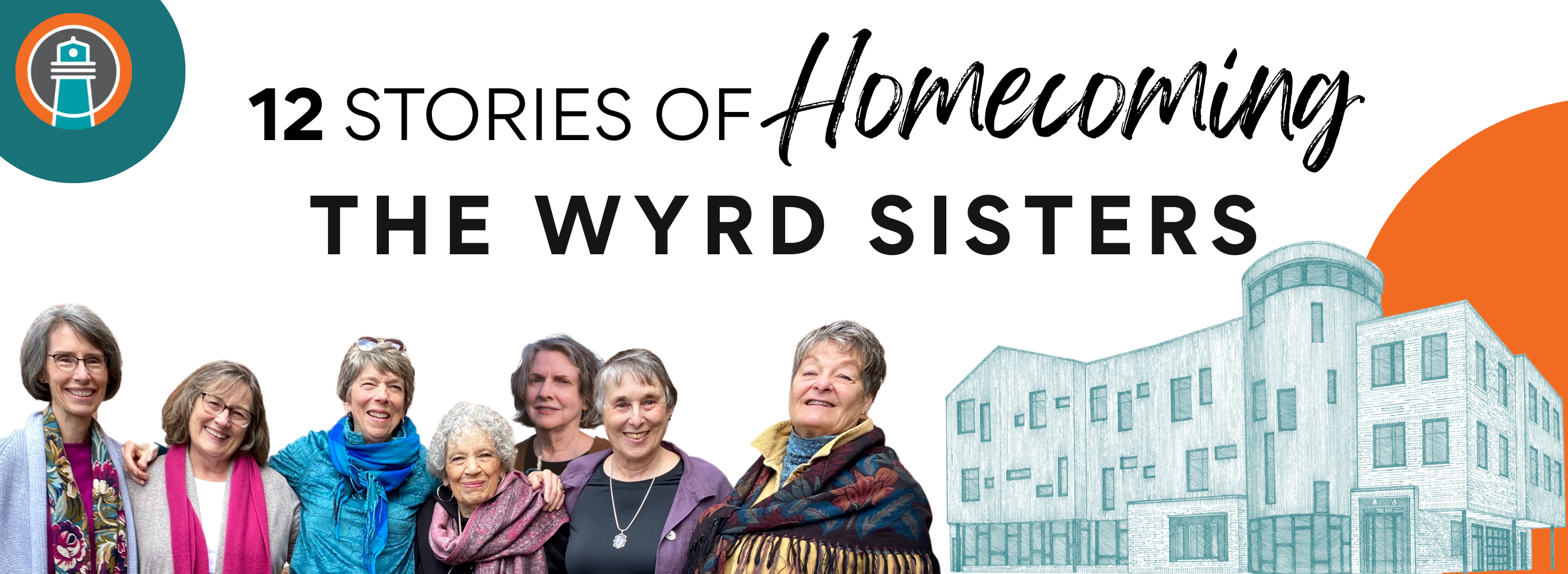
Editor’s Note: This year, Lighthouse will move into our exciting new home. The 12 Stories of Homecoming is a series of stories written about creatives from all walks of Lighthouse that have made us who we are today. We are endlessly grateful for the support from our community and eager to welcome you home so we can open the doors even further, together.
Wyrd - Old English: (Inexorable) fate, destiny. Oxford English Dictionary
Almost a decade ago, a group of women sat together in a Lighthouse poetry class taught by late beloved instructor Chris Ransick. They explored new poems and old, wrote some of their own, and, more importantly, formed deep bonds with one another. In 2015, they applied for what was then called the Poetry Project, now the Poetry Collective, and were accepted into a two-year cohort together, mentored by Chris Ransick and Elizabeth Robinson.
Connie Zumpf, Kirsten Morgan, Diane Alters, Erika Walker, Gail ben Ezra, Lois Levinson, and Harriet Stratton have now been a close-knit writing group for over eight years.
“When our group formed, we decided we needed a name,” said Morgan. “I’ve always been drawn to Shakespeare and remembered the Wyrd Sisters. When I looked up the definition and saw it meant fate, destiny, and wisdom, I knew it was the perfect name for our group.”
“We were particularly lucky,” ben Ezra said. “We had a bonding experience that solidified from the get-go. We became a community dedicated to helping each other.”
“We are more than just writing buddies,” said Alters. “I started writing poetry in 2012 because my son had just died. When I told Chris Ransick before that class started, he said that’s what poetry is all about. It’s about life and death and everything in between. And it’s what really sets the Poetry Collective apart from an MFA. You’re writing about your life.”
The WYRDs (as they call themselves) have met twice a month, consistently, since their group formed. They are each other’s greatest cheerleaders and are deeply invested in one another’s work. When a WYRD finishes a complete manuscript, they read each poem out loud, one by one, then give each other soft suggestions and sharpen their skills as a group. All in agreement, they shared that their work has become more layered, complex, and better, thanks to each other’s support.
“It really can’t be overstated how important a writing community is,” shared Walker. “We all know writing is lonely, and it’s hard to keep your confidence up and have accountability.”
“That community aspect was reiterated by our poetry mentor, Elizabeth Robinson,” shared Stratton. “To learn poetry, you need to read a lot, discuss with others, and have a literary group!”
When asked about Lighthouse’s new building, some of the WYRDs were understandably hesitant with such warm memories of Lighthouse at the house on Downing Street and the old mansion on Race Street. But they quickly turned that hesitation into hope, opportunity, and action.
“Part of what makes this new building so important to me is it establishes Lighthouse as a true literary center,” Zumpf shared. “It’s a physical manifestation of Lighthouse’s expanding mission. With a bigger building that’s more accessible for everyone, we’ll welcome more folks in from the neighborhood and have more classroom space. It’s a statement of renewal and new life, and it will hopefully mean more small groups like ours!”
The WYRDs have dedicated a library poetry collection right next to the fireplace on the second floor. They intend to fill the shelves with a slew of poetry books, including some from their favorite Lighthouse instructors.
“The instructors at Lighthouse are unmatched. To have beginners and highly advanced classes all under one roof—that’s what’s been remarkable,” said Morgan.
“I’ve lived in several parts of the country, and Lighthouse really is unique,” said Walker. “Mike and Andrea’s commitment to community and generosity of spirit has carried it through. We’re excited to see how it evolves.”
“Lighthouse changes lives, and it changed and enriched each of ours,” shared Zumpf. “We might not have ever met without Lighthouse poetry classes, and we certainly would not have become a cohesive and supportive group without the structure of Lighthouse’s programs, and I for one will always be grateful for that!”

